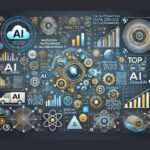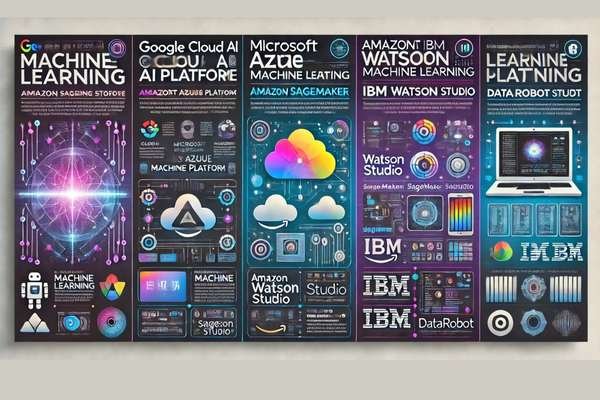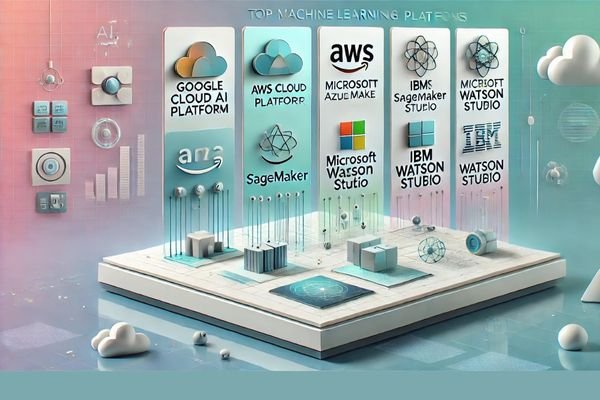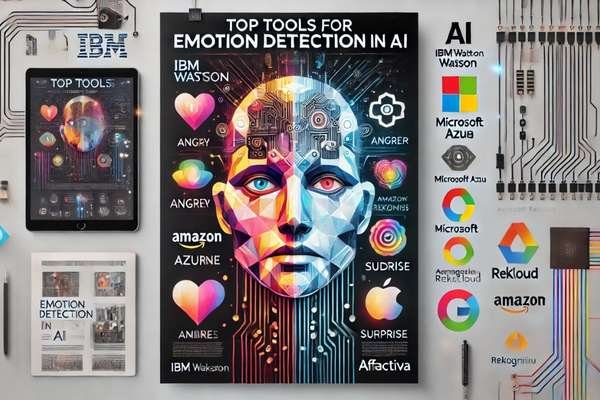
Best AI Solutions for Automating Data-Driven Decisions
November 13, 2024
Top 5 AI Image Generators for Stunning Visuals in 2025
November 13, 2024Best AI Solutions for Data Privacy and Security in 2025: AI solutions for data privacy and security are becoming more advanced and essential for businesses worldwide. With data breaches on the rise and regulations tightening, companies need to implement robust AI-powered tools to protect sensitive information. Digital marketing professionals, developers, and content creators alike must understand how AI can address the most pressing data privacy concerns.
Table of Contents
1. The Role of AI in Data Privacy and Security
How AI Enhances Data Privacy and Security
Artificial intelligence has transformed the landscape of data privacy and security, providing tools that can detect, prevent, and respond to threats in real-time. With capabilities such as machine learning, anomaly detection, and predictive analytics, AI can detect patterns that human analysts might miss, ensuring proactive protection for sensitive data.
Why Data Privacy is Crucial in 2025
In the digital world, privacy is a top concern for customers and regulatory bodies alike. Laws like GDPR and CCPA have raised the bar for data security practices, requiring companies to safeguard personal information. As more businesses embrace digital transformation, maintaining privacy and data security will be key for trust and compliance.
Benefits of AI for Privacy
- Automated Threat Detection: AI algorithms can identify unusual patterns indicative of data breaches.
- Reduced Human Error: AI minimizes risks associated with manual processes.
- Compliance Monitoring: Helps organizations stay aligned with regulations by alerting them to non-compliance risks.
2. Top AI Solutions for Data Privacy and Security in 2025
2.1 IBM Watson for Cybersecurity
IBM Watson for Cybersecurity is a pioneering AI-driven security solution that leverages machine learning to understand complex threats. This tool combines cognitive computing with security analytics to detect advanced persistent threats (APTs) and offers insights that improve incident response times.
Key Features
- Cognitive computing to analyze threat intelligence.
- Automated incident response recommendations.
- Integration with existing security infrastructure.
Best Use Cases
- Threat Intelligence: IBM Watson scans vast datasets to detect advanced threats.
- Incident Management: Simplifies incident response by offering data-backed recommendations.
2.2 Darktrace – Autonomous Response AI
Darktrace has earned a reputation for its self-learning AI, which provides autonomous responses to cyber threats. Darktrace uses machine learning to establish a unique baseline for normal network behavior, enabling it to detect anomalies in real-time and respond without human intervention.
Key Features
- Autonomous threat detection and response.
- Self-learning AI that adapts to new threats.
- Real-time alerts and insights on network behavior.
Best Use Cases
- Zero-Day Threat Detection: Identifies unknown threats before they cause harm.
- Network Security: Ensures safe, real-time monitoring and protection of network traffic.
2.3 Google Cloud AI for Data Privacy
Google Cloud AI offers a suite of tools designed to protect data privacy and security. This includes advanced encryption, data loss prevention (DLP), and threat detection tools, all powered by Google’s deep learning capabilities.
Key Features
- DLP to protect sensitive data.
- Threat detection based on Google’s global security intelligence.
- Encryption for data in transit and at rest.
Best Use Cases
- Data Loss Prevention: Prevents sensitive data leaks by identifying and encrypting data at risk.
- Compliance and Security Management: Assists with meeting GDPR, HIPAA, and CCPA compliance requirements.
2.4 CrowdStrike Falcon for Endpoint Protection
CrowdStrike Falcon specializes in endpoint protection, offering AI-driven detection and response capabilities. The solution uses machine learning to detect malware, ransomware, and other endpoint threats, providing businesses with real-time protection across devices.
Key Features
- AI-driven endpoint threat detection.
- Malware and ransomware protection.
- Lightweight and scalable across different devices.
Best Use Cases
- Remote Work Security: Protects endpoints used by remote employees.
- Real-Time Threat Detection: Quickly identifies and responds to endpoint vulnerabilities.
2.5 Microsoft Azure AI for Security
Microsoft Azure AI integrates seamlessly with Microsoft’s cloud ecosystem to offer a powerful data security solution. With Azure AI, companies can deploy machine learning models to detect threats, manage identity, and protect sensitive information within their cloud environment.
Key Features
- Identity protection and access management.
- Threat detection using machine learning models.
- Data encryption and protection within the Azure cloud.
Best Use Cases
- Cloud Security: Azure AI provides advanced security for data stored in the cloud.
- Access Management: Offers role-based access control and multi-factor authentication for secure logins.
Best AI Solutions for Data Privacy and Security in 2025 Comparaison
| AI Tool | Key Features | Best Use Cases | Pros | Cons |
|---|---|---|---|---|
| IBM Watson for Cybersecurity |
|
|
|
|
| Darktrace |
|
|
|
|
| Google Cloud AI |
|
|
|
|
| CrowdStrike Falcon |
|
|
|
|
| Microsoft Azure AI |
|
|
|
|
3. Frequently Asked Questions
What are the best AI tools for data privacy in small businesses?
For small businesses, Darktrace and Google Cloud AI are excellent choices. Darktrace provides autonomous response capabilities, reducing the need for in-house security teams, while Google Cloud AI offers cost-effective options for data loss prevention.
How does AI improve data security compared to traditional methods?
AI enhances security by providing real-time threat detection, minimizing human error, and adapting to new cyber threats more quickly than traditional methods. With tools like IBM Watson and Microsoft Azure AI, businesses gain predictive capabilities and quicker response times.
Are AI-driven data privacy tools compliant with regulations?
Most reputable AI-driven tools, such as CrowdStrike Falcon and Google Cloud AI, are designed to comply with industry regulations, including GDPR, HIPAA, and CCPA. They offer features that help businesses align with regulatory requirements, such as encryption and data access controls.
Conclusion
AI solutions for data privacy and security are becoming indispensable in 2025, equipping businesses with the power to protect sensitive information against evolving cyber threats. From IBM Watson’s advanced threat intelligence to Darktrace’s autonomous response capabilities, these AI tools offer the proactive and adaptive security measures essential for digital marketing professionals, developers, and content creators. Embracing AI for data security will enable businesses to stay compliant, build customer trust, and safeguard their operations in an increasingly data-driven world.








